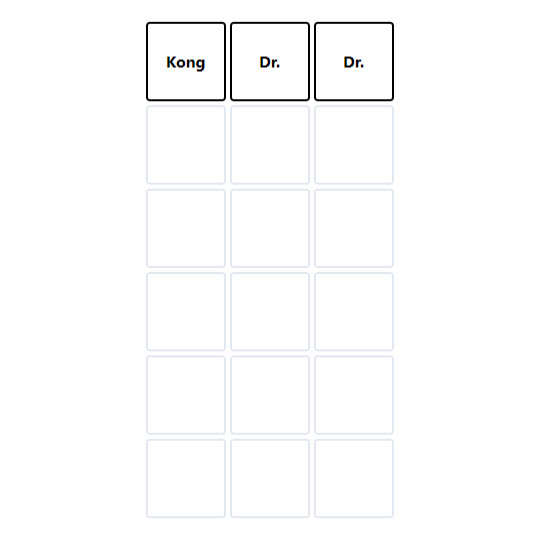
Mardle is a word game that combines elements of creativity, vocabulary, and strategy. It's a game where players take turns building upon a collective word, adding one letter at a time to create new words or alter existing ones. The goal is to strategically manipulate the word to either score points or challenge opponents.

Setup: Players gather in a circle or around a table. Each player is given a set of letter tiles, similar to those used in Scrabble or Bananagrams. The starting word is chosen, usually a simple word of moderate length.
Turns: Players take turns adding a single letter to the word, either at the beginning, end or somewhere in the middle. The objective is to create a valid word each turn. For example, if the starting word is "CAT," a player might add an "S" to make it "CATS" or add an "H" to make it "CHAT."
Scoring: Points can be awarded based on the length or complexity of the word created on each turn. Alternatively, players may agree upon a predetermined scoring system before starting the game.
Challenges: If a player doubts the validity of a word added by another player, they can issue a challenge. If the challenged word is found to be invalid, the player who added it loses points or skips a turn. However, if the word is deemed valid, the challenging player may face penalties instead.
Strategy: As the game progresses, players must strategize to maximize their points while also preventing opponents from gaining an advantage. This may involve carefully selecting letters to add, anticipating challenges, and considering the potential ramifications of each move.
Endgame: The game typically ends when a predetermined number of rounds have been completed, or when players agree to conclude the game. The player with the highest score at the end is declared the winner.
Mardle offers a blend of linguistic skills, tactical thinking, and social interaction, making it an engaging pastime for players of all ages. It encourages creativity with language and fosters friendly competition among participants. Whether played casually with friends or in organized tournaments, Mardle is sure to provide hours of entertainment for word enthusiasts everywhere.
Using Mouse and Keyboard.
Expand Your Vocabulary: The more words you know, the more options you'll have during the game. Take the time to learn new words and their meanings, especially those with uncommon letter combinations that can be useful in Mardle.
Plan Ahead: Think about the potential consequences of your moves before adding a letter to the word. Consider how your action might impact future turns and whether it opens up opportunities for your opponents.
Anticipate Challenges: Be prepared to defend the words you add to the word. Consider whether your word might be disputed by other players and have a justification ready if needed.
Observe Patterns: Pay attention to the letters and words used by other players. Look for patterns or tendencies that might give you insights into their strategies and preferences.
Strive for Balance: Aim to strike a balance between scoring points and preventing your opponents from gaining an advantage. Sometimes it's better to play defensively and block opportunities for your opponents rather than solely focusing on maximizing your own score.
there are many other games developed under Connections NYT, let's try them out